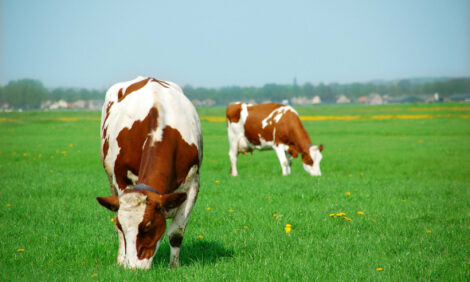



Farmers regularly face isolation; it's important to stay connected
The inherent nature of the agricultural occupation is independent. Isolation is often linked to impacts on mental health and loss of life by suicide, writes Eric Karbowski, Michigan State University Extension.Farmers have a deep rooted and often generational connection to their land yet suffer from high levels of stress and burnout. The use of technology, social distancing and a change in cultural norms are modifying the landscape of social outlets for farmers and farming communities. Farmers are using new and improved equipment with state-of-the-art technology in their day-to-day farm operations. As a result of this cultural shift, the decreased need to employ farm help is further limiting the social networks of farmers. Additionally, the increasing demand to cut costs and improve efficiency are forcing farmers to complete more tasks independently. Ultimately, these adaptations increase independence, reduce socialization and increase isolation.
According to Yazd et.al (2019), geographical and social isolation are frequently connected with psychosocial risk factors that impacts farmers health. Farmers can experience symptoms such as increased depression, high levels of stress and burnout, which are magnified by isolation. The changing culture of the farming industry, sense of pride, resistance to seek help, availability of behavioral health resources and competitive nature of the farming industry are contributing factors to the mental health and wellbeing of farmers.
Stay connected, it’s good for you
With the multitude of compounding factors the farming community is facing, how do farmers develop sustainable social outlets? Limited platforms for farmers to connect with farmers on a peer-to-peer level currently exist. Social outlets and local relationships instinctively foster the development of natural support systems.
Natural support systems can come in many different forms and settings. The opportunity to connect with a fellow farmer can be over coffee at a local elevator, weekly breakfast, regular “shop talk” meetings, or simply stopping in to check on a neighbor. Recognizing the importance and making efforts to stay connected with peers will develop local relationships and organically promote the development of natural support systems that build resiliency during difficult times.
The next time you can “chew the fat” with a fellow farmer, take advantage of it. The benefits of connecting with someone that shares a similar interest, venting and strategizing can have a positive impact on your productivity and overall mental health. Investing time to connect with others could be a sound investment in yourself.
Opportunities to connect
Michigan State University Extension’s many resources and information on farm stress can be found at the Managing Farm Stress website. There you will find descriptions of programs such as Communicating with Farmers Under Stress and Weathering the Storm, as well as other articles, projects and resources. Learning self-awareness, signs and symptoms of stress, mental illness and suicide can better enable the farming community to support each other during trialing times.
TheCattleSite News Desk


